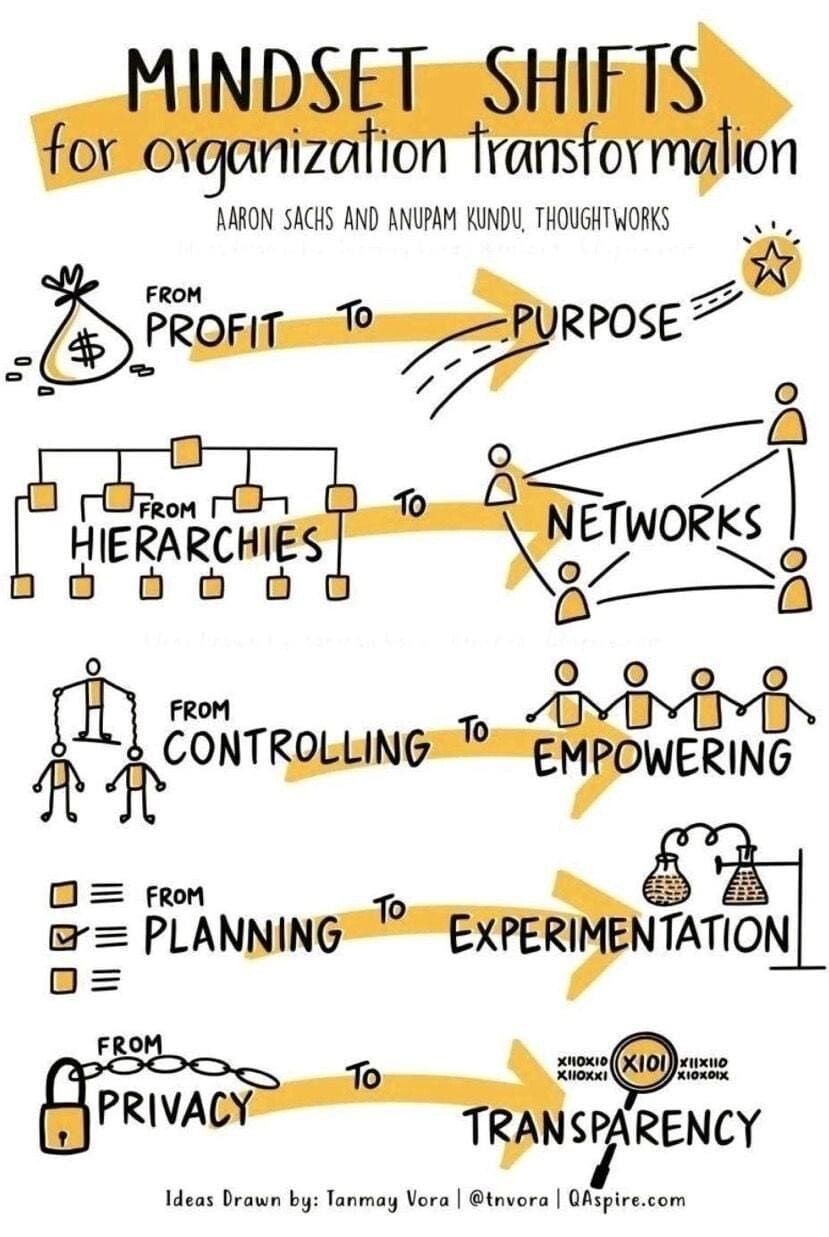Decentralized Church & The Digital Analytic That Matters
I'll be the first to admit it, analytics in digital environments can be confusing. So many numbers they sometime cease to have meaning? Is this a view, a download, or a stream? How many people were in the room watching the stream? How many times was the download played, and was it by multiple viewers at the same time or the same viewer multiple times? Does it matter? How long was the view? Does how long matter? What part of the service was viewed? What is the line that we use to establish that a person officially "attended" church this week? All the different platforms not even aligning by providing different metrics certainly doesn't help. It's difficult to navigate, and is often changing.
I find it interesting that these metrics basically come down to vanity stats. How many people sat in our building on Sunday? How many people consumed our product online? It's easy to judge the spiritual success of our church by having the usher stand in the back and count heads. Nickels and noses is a great way to measure success of a corporation. But Matthew's 28's Great Commission holds us to a different standard, one that takes more time and is proven far more effective.
 In this series of blogs, we'll be exploring the idea of Decentralized Church
, and the mindset shifts that will be necessary for churches like yours to thrive in this next season.
In this series of blogs, we'll be exploring the idea of Decentralized Church
, and the mindset shifts that will be necessary for churches like yours to thrive in this next season.
Mindset Shift #1: From Profit to Purpose
Organizations in the next era are moving away from a centralized mindset, as culture's approach moves more towards decentralization. Interestingly, we've talked recently about the need for our organizations to shift towards a decentralized mindset. Simply put, the first shift the Church needs to do is to shift " from profit to purpose. "
The challenge for churches today is to not focus on a "profit" mindset, (whether intentionally validating ministry based on amount of tithes/collections, or even other vanity metrics like attenders per weekend in a physical space "profit" ego). Instead of a centralized "profit" mindset, we should start looking at a decentralized "purpose" mindset. How are we, the church, helping our attenders find their purpose?
Quickly, serving in the church probably comes to mind with purpose. I've been guilty of it. There was a time, let's be honest, when service to the church looked more like "serve us, the church." Typically, a percentage of church attenders are always active serving in the church, helping the church accomplish its programming. My pastor needs me as a greeter. My pastor needs me to run sound. My pastor needs me to watch the babies. A shared vision allowed collectively for people to work together towards a common goal. That's not a bad idea, by the way. Essentially the church is crowdsourcing execution of weekend services among other things. In 2022, though, we're seeing where there's limitations on this mindset: the decrease in weekend attendance, lack of trust of senior leadership, even the public moral failure has caused these high level attenders to pause to re-evaluate.
What if we, the church, pivoted/changed/did something different (I know people don't like the word pivot anymore). What if we adjusted our mindset away from vanity metrics like attendance and instead focused on the true biblical purpose of the church: disciple-making.
Measuring a Disciple, One Disciple at a Time
Recently on The Church Planting Podcast, David Nelms of The Timothy Initiative shared a harrowing insight, based from 2 Timothy 2:2 - And the things you have heard me say in the presence of many witnesses entrust to reliable people who will also be qualified to teach others.
As Paul writes these words, we the reader see four different generation of people. And the things you (#1) have heard me (#2) say in the presence of many witnesses entrust to reliable people (#3) who will also be qualified to teach others (#4).
Paul is challenging Timothy to listen, pass that onto someone else, who will then be able to tell someone else. That's four generations of disciple-making happening. Our churches, our organizations have operated this way for years, certainly. But we're losing effectiveness, and it's time for others to step up. David Nelms qualifies his perspective, better defining disciple.
If you're not making disciples, who make disciples, you're not making disciples. - David Nelms, The Church Planting Podcast with Greg Nettle
Church, our future is not in our big buildings, but in our people. The greatest asset we have as a church is in our pews. Disciple-making isn't done with a megaphone, but in a conversation, a small conversation at that. The simple question here is, are our churches growing, or multiplying? For our disciples to effectively tell others who tell others who tell others... they don't need to be taught, but trained. Are we teaching about discipleship or are we training and encouraging disciple-makers?
Are Our Church Services the Leading Indicator or Endgame?
What stat should you be measuring? Let's start with how many disciple-makers you have in your church that are capable of making other disciples. For all of us, there's room to improve here. Vanity metrics like butts in seats or views on a stream play a part, but a very small part, in making a disciple who makes a disciple. Arguably that church service is only as effective as it is helping people move to whatever that next step in your discipleship process. To me, this is the most critical moment in your church's discipleship process: the moment an attender moves away from a consumeristic mindset and intentionally steps into disciple-making relationship. This is your metric... the moment you start helping give your attenders purpose. Your victories become their victories.
Pastor, don't be upset that people aren't in your building. Be upset that people do not have spiritual purpose when they're not in your building. Let's work on that.
Through the Digital Church Network we are helping physical and digital churches better understand the discipleship process, and helping churches and church planters understand this and other decentralized mindset shifts. Joining the DCN is free! Check out http://digitalchurch.network/joinfam
What do you think? Share your ideas on Discord or on social media.
Through the.Church.digital, we are helping physical and digital churches better understand the discipleship process, and helping churches and church planters understand this and other decentralized mindset shifts. By taking this quick assessment we can get you connect with a coach, resources and more. Also, check out our Discord Group where we are encouraging people daily.
























